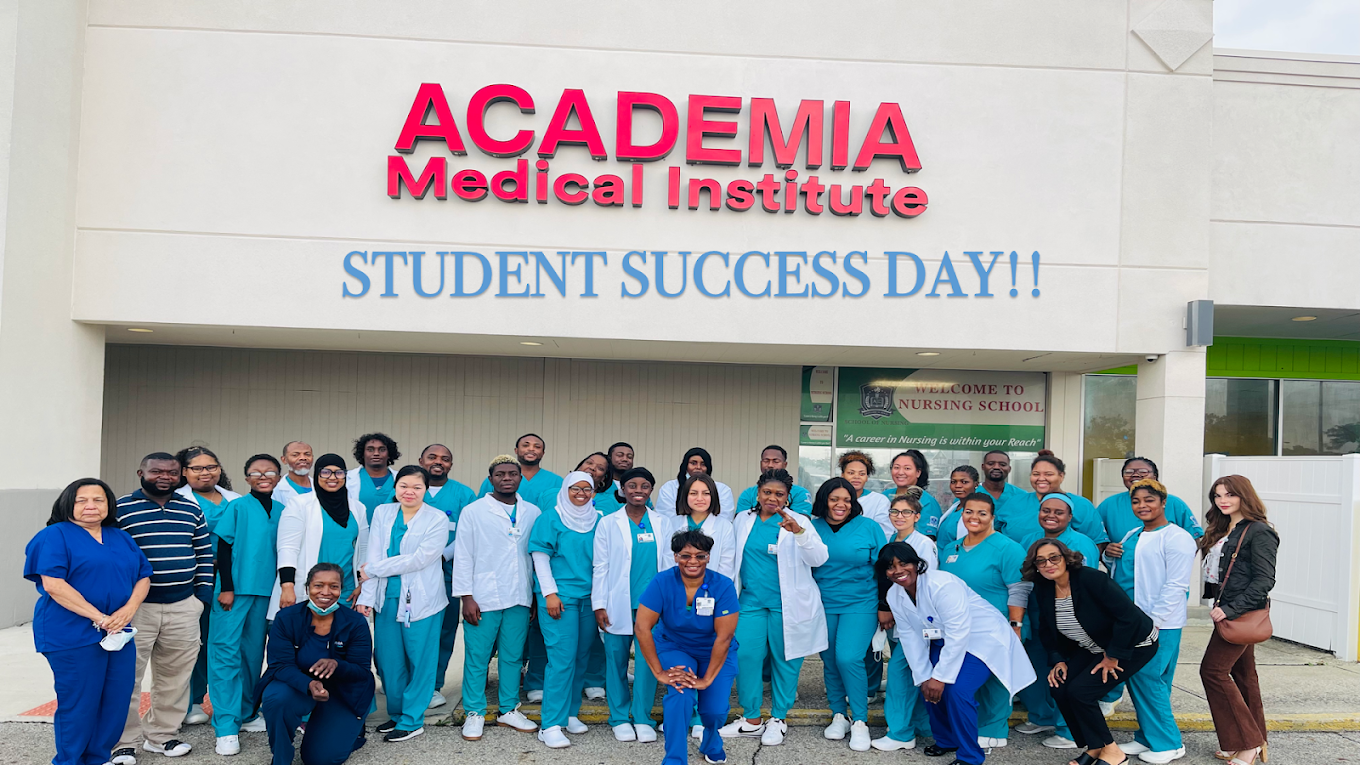
PRACTICAL NURSING (PN) PROGRAM DESCRIPTION
Practical Nursing Education is a 12-month program designed to enable the student to provide safe, direct care for assigned clients of all ages in various structured healthcare settings. Supervision by qualified faculty, as required by Ohio Administrative Code 4723-5-11, “Qualifications of administrative, faculty and instructional personnel for a practical nursing education program” is provided.
This program consists of three components which are theoretical or classroom experience, laboratory practice experience, and clinical experience. This program is designed to progress from general to specific skills. The Program’s philosophy and organizing theme guide the curriculum. There is an emphasis on each student to function in a mature, consistent manner that reflects an understanding of ethical conduct, personal responsibility, and accountability for behaviors and actions. Course content includes all areas of study, as mandated by Ohio Administrative Code 4723-5-14.
PROGRAM DELIVERY
Blended: All courses in the PN program are delivered on-ground.
CONCEPTUAL FRAMEWORK
The Academia Medical Institute faculty subscribe to the conceptual framework of Jean Watson’s Caring Theory (see website address below as a reference) as a basis for program structure and teaching. The following ten creative factors form a framework for understanding nursing as the science of caring. Watson uses the term “carative” instead of “curative” to distinguish between nursing and medicine. “Whereas curative factors aim to cure the patient of disease, curative factors aim at the caring process that helps the person attain (or maintain) health or die a peaceful death”. As nurses, you would use these curative factors in the delivery of healthcare to your clients. The 10 causative factors are The formation of a humanistic-altruistic system of values, The development of a helping-trusting relation, The promotion and acceptance of the expression of positive and negative feelings, The systematic use of the scientific problem-solving method for decision-making, The promotion of interpersonal teaching-learning, The provision for a supportive, protective and (or) corrective mental, physical, sociocultural, and spiritual environment, Assistance with gratification of human needs and The allowance for existential-phenomenological forces. As retrieved from: http://www.angelfire.com/bc3/nursinginquiry/carative.htm
Practical Nursing (PN) Admission Requirements
- REGISTRATION FEE: Applicant must complete the Application and pay a registration Fee of $100 (Application online)
- PROOF OF RESIDENCE IN OHIO: The applicant must be a U.S. citizen or Permanent Resident of the United States. Applicants must also be a resident of the state of Ohio. To prove residency, the applicant must submit two forms of official, unexpired government-issued identification. One of the forms of identification must include an address. Acceptable forms of documentation include a Social Security Card, Driver’s License, State Issued I.D.D, Passport, and/or proof of U.S. Citizenship or Permanent Residency card, if not a U.S. Citizen.
- If the applicant’s identification that includes an address lists a non-Ohio address, the applicant will be required to provide an attestation stating that they currently reside in Ohio, along with supporting documentation, such as a lease/rental agreement, utility bill, or similar, if possible.
- HIGH SCHOOL/GED: The applicant must provide documentation of graduation from high school in the form of a valid high school diploma, transcript, PTt, or other acceptable documentation issued by an authorized state education agency (e.g., General Education Development (GED) in Ohio.) INTERNATIONAL TRANSCRIPTS/DOCUMENTS NEED TO BE EVALUATED BY A THIRD-PARTY EVALUATOR FOR EQUIVALENCY.
- ENTRANCE EXAM: The applicant must pass the ATI TEAS Pre-entrance exam with a score of 48% and the HESI Entrance Exam with a composite score of 70%. Entry Exams must be within 2 years from the date taken the test.
PROGRAM OUTCOMES AND OBJECTIVES
Upon successful completion of this Practical Nursing education program, the graduate will be able to:
- Apply scientific principles to provide safe, direct care for clients in various healthcare settings within their scope of practice.
- Contribute to data collection, planning, implementation, and evaluation of nursing care, using the nursing process, within the legal scope of practice for a practical nurse.
- Communicate effectively with clients, families, peers, and those from other healthcare disciplines to ensure that effective, seamless care is provided
- Use critical thinking skills to apply knowledge from the biological and behavioral sciences in the delivery of safe, competent, effective care to clients across the lifespan.
- Demonstrate professional, ethical behavior that follows the legal scope of practice of the Practical Nurse and includes taking personal responsibility for their nursing actions.
- Identify the learning needs of clients assigned to them and assist other members of the health care team in presenting the necessary information.
- Identify the need for professional growth and learning to ensure that their practice reflects the most recent concepts of health care and to meet required continuing education units for licensure renewal.
- Apply to take the National Council Licensure Examination for Practical Nurses (NCLEX-PN).
Clinical Site Visit Pre-Requisites:-
- COMPLETED BACKGROUND CHECKS —Both BCI and FBI (Using Code: 4723.09)
- CPR CERTIFICATION: Applicants must have a Cardiopulmonary Resuscitation (CPR) Healthcare Provider — Basic Life Support (BLS) completion certificate prior to beginning the program. Amet consectetur adipisicing elit Officia.
- PHYSICAL EXAMINATION: Applicant must have current record of physical examination by a licensed health care provider prior to admission to the program (no older than 1 Year). Please contact us to receive the required application forms
- 1-STEP TUBERCULOSIS(TB) TESTING: Applicants must have a screening for TB test prior to the start of the Clinical Site Visit. Testing must be done within one year before beginning the program and again before beginning clinical rotations.